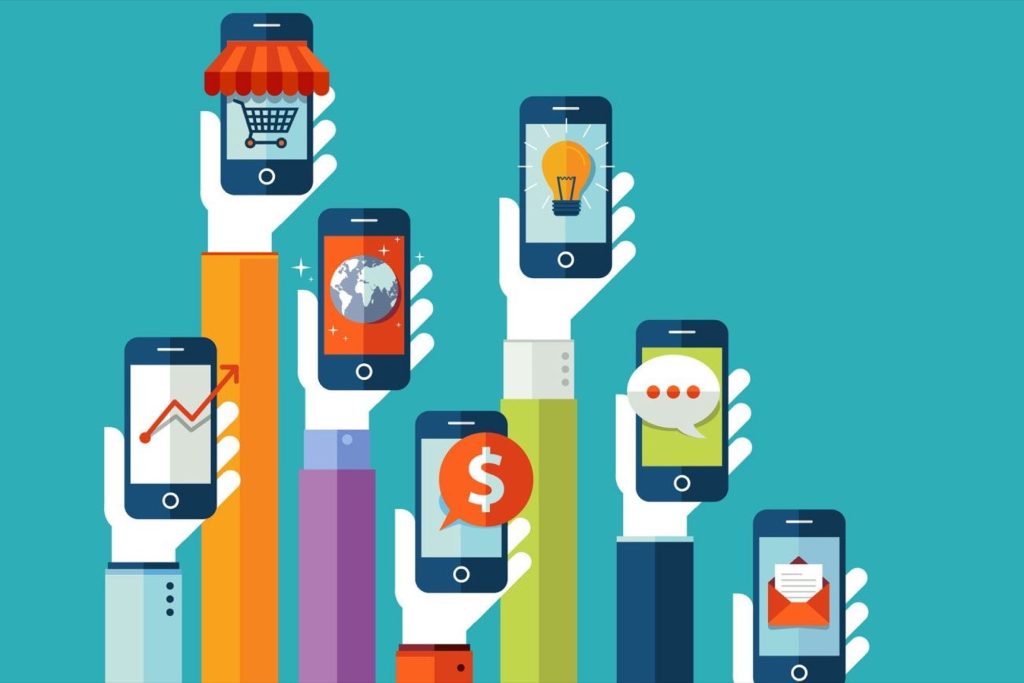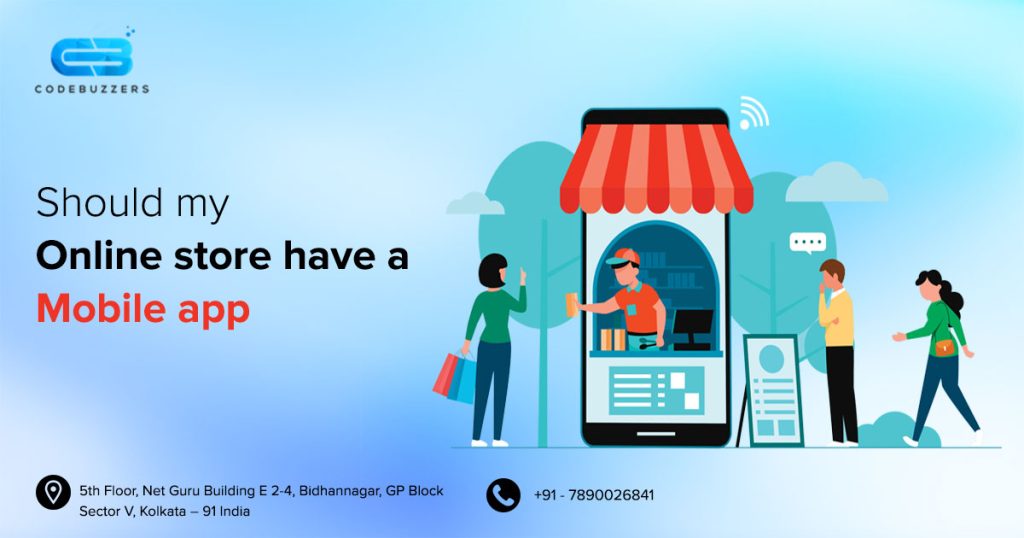Should My Online Store Have A Mobile App?
Websites for eCommerce with mobile commerce, and e-commerce, aren’t mutually exclusive. As per the Mobile App Development Services, both cater to different demographics and play different roles in the customer journey. What matters is that you consider mobile experiences while developing your eCommerce strategy.
However, according to many types of research, eight out of ten individuals shop online, and more than 50 percent shop on their phones. Your organization is undergoing a metamorphosis as you read this. You’re missing out on actual conversions if you don’t use mobile visitors.
While a website design is a great place to start ecommerce for small businesses, a mobile or tablet app has several advantages over having a mobile website. Here is a list of excellent reasons why your digital commerce firm, in also has a mobile-responsive website, should invest in mobile app development.
Improved user experience and ease of use
Even if your website is dynamic, the browser will prompt the customer to check in to their profile before proceeding with their purchase. When it comes to mobile apps, the subscriber information is stored in the app, so users now have to login in once after downloading it. So, you need to contact the Mobile App Development Company.
The convenience of use is higher, and the subsequent user happiness is likewise increased because customers do not have to sign in every time they shop. Compared to a website, mobile applications allow users to navigate between several tabs and successfully handle and better user experience more accessible.
The use of mobile applications as a marketing tool
Mobile applications enable you to give a consistent omnichannel experience to your customers. Apps can integrate social media, combining many customer engagement channels. Customers’ preferences are saved in the application, sending personalized content to the right people.
Geofencing and push alerts delivered to a user’s device if they are near physical stores or when a special deal is available can also lead to a more engaged consumer base.
Access to native phone features
Mobile applications may reap the benefits of the phone’s particular features, whereas mobile websites cannot. Integrating existing smartphone features, including GPS and cameras, improves the user experience. An app-only part is collaborative shopping using reality and augmented reality.
Another advantage is the accessibility of native apps that Who can use offline. While the applications take up all the space on the user’s smartphone, they may be utilized even if the smartphone is not hooked up to the internet, allowing consumers to purchase on the move.
Checkout is quick and easy, with a variety of payment choices
The most severe problem that retailers face is shopping cart abandonment. Consumers are likely to abandon their shopping carts in-store but on an online marketplace if the shopping experience appears to be lengthy.
By making the checkout process interactive, mobile apps reduce friction. Mobile wallets’ broad appeal stems solely from their ability to complete transactions quickly. By enabling speedier authentication, technologies like fingerprint scanning or face recognition help remove irritation from shopping and payment.

Integration of cutting-edge technology for a more engaged client experience
Mobile apps and technology are tightly connected. Businesses including IKEA and Sephora are leading the way in incorporating augmented reality into smartphone apps. Integrating AR/VR into applications renders them more interactive, resulting in more engaging consumer experiences.
Who can also use artificial intelligence in the form of chatbots in apps to aid users in locating what they want and finishing the checkout process? Personal shopping companions powered by machine learning algorithms will soon be the norm, making buying simple and fun — as it should be.
Customer Loyalty Should Be Increased
Creating a loyalty program is a terrific approach to entice your consumers to spend more money. Your clients are more likely to join this type of program if you have an eCommerce mobile app. It would help if you took advantage of this opportunity. Customers can check their progress in a program in real-time through an app, which connects to our earlier point about personalization. Transactions are one approach to setting up a loyalty program. It’s a virtual punch card, if you will.
A loyalty program encourages your users to purchase more money to earn their next prize.
Boost Your Retention Rates
It would help if you were ecstatic whenever you could create eCommerce sales. However, sales alone do not reveal the complete story.
How much of your business is generated by repeat customers?
According to studies, recruiting a new Mobile App Development Company might account for up to twenty-five times more than marketing to an existing customer. However, even a 5% increase in customer retention can boost profitability by 25 percent to 95 percent. Even if a user isn’t returning to the app as frequently as you’d want, push notifications can always be used to entice them back. To motivate customers to buy through your app, provide a surprise sale or an exclusive promotion. These changes aren’t available on a mobile or desktop site.



